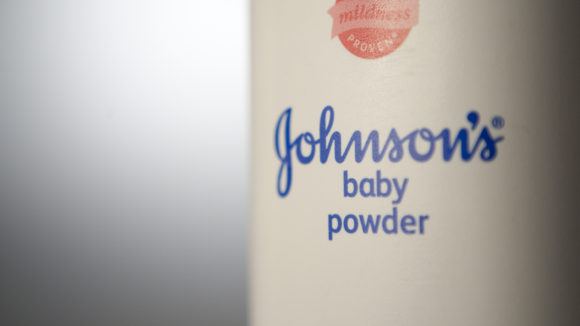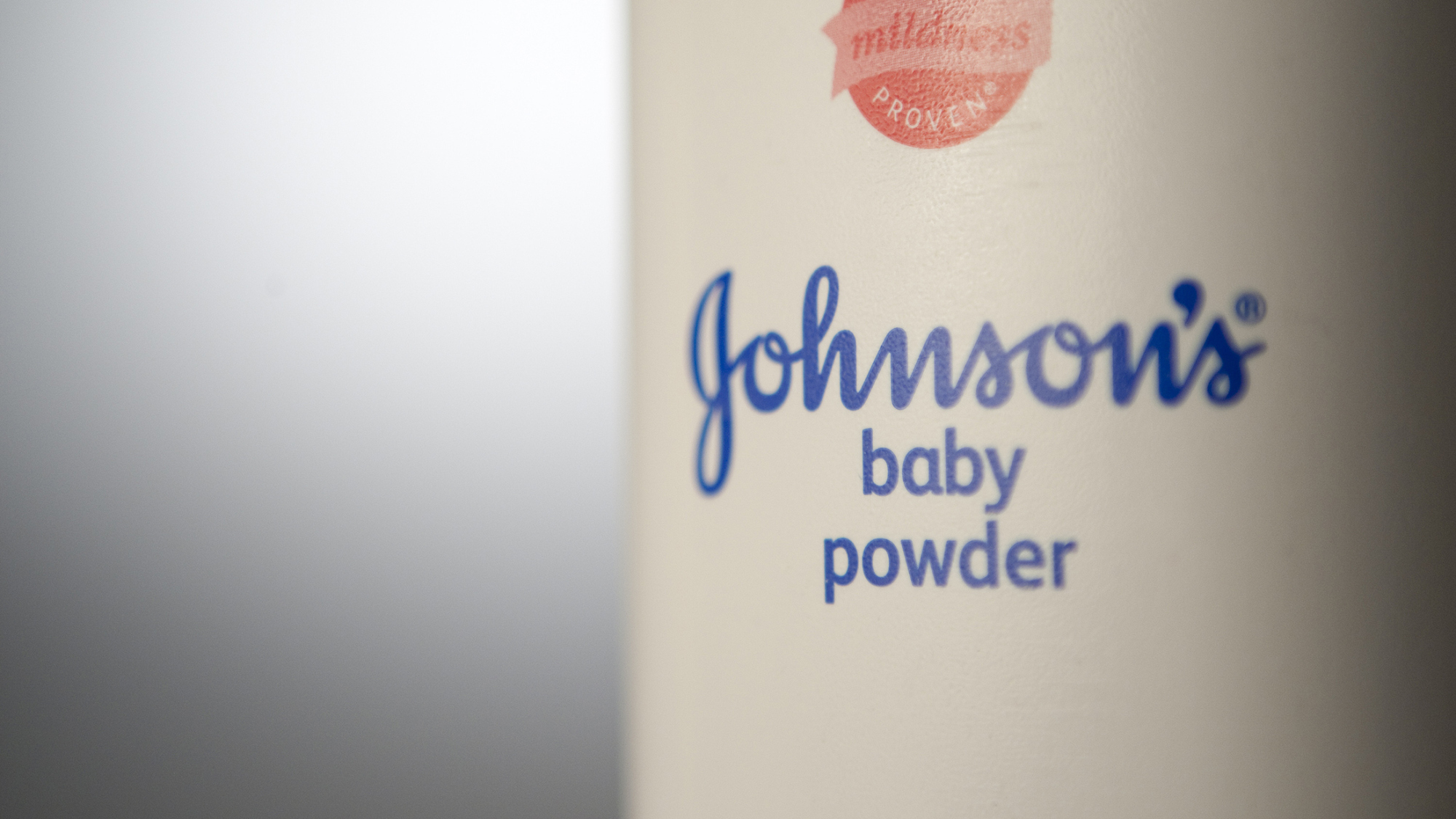
A retired federal judge will help decide the fate of thousands of Johnson & Johnson baby powder cancer lawsuits even though her law firm represents the drugmaker in other matters.
Freda Wolfson was appointed earlier this summer to re-examine how experts analyzed some scientific evidence on the link between J&J’s talc-based powder and cancer. She has deep expertise after conducting a similar inquiry while overseeing suits accusing J&J of hiding its baby powder’s health risks.
The 71-year-old former judge supervised the consolidation of the federal cases for seven years before retiring in 2023 and joining the New Jersey-based law firm of Lowenstein Sandler. That firm represented the J&J unit that first filed for bankruptcy in 2021.
So-called special masters like Wolfson seldom draw public attention, but her role is in the spotlight because conclusions on expert analysis could bolster or doom plaintiffs’ chances of winning big verdicts against J&J. The company already has paid out billions of dollars in damages in state court trials over claims its talc powder caused cancer — a contention that the drug maker has consistently denied.
US District Judge Michael Shipp in Trenton — who inherited the sprawling baby powder litigation from Wolfson — determined before naming her as a special master that she doesn’t have a conflict of interest under federal ethics rules. Shipp found she disclosed her law firm’s ties to J&J and walled herself off from colleagues who work on “wholly unrelated” company matters. Wolfson will evaluate expert evidence that surfaced after she okayed the science underlying the litigation in 2020.
While lawyers on both sides consented to Wolfson’s role and agreed to split her fees, some legal scholars say the appointment is troubling because of the firm’s ties to J&J.
“It’s really not a good look to pick someone whose law firm represents J&J – even if it isn’t in the baby powder cases,” said Carl Tobias, a University of Richmond law professor who teaches about product-liability cases. “You don’t want to have any appearance of conflicts when it comes to making recommendations on whether these cases should go to trial.”
A spokesman for J&J declined to comment. The company withdrew its talc-based baby powder worldwide in 2023 and replaced it with a cornstarch version. It’s now sold by Kenvue, the consumer unit J&J spun off the same year.
Waived Objection
Wolfson said in an email her prior management of the cases and familiarity with the proper standards for expert-witness testimony makes her well-positioned to review the new evidence. “To the extent any potential conflict could be perceived, the parties expressly and knowingly waived any such objection,” Wolfson said.
The fact that Lowenstein Sandler represents J&J in corporate matters not related to talc doesn’t pose a conflict in the baby powder cases, she said in a June affidavit.A spokesman for the law firm wouldn’t specify what types of cases it handles for J&J.
Wolfson issued a landmark ruling in 2020 clearing the testimony of expert witnesses as scientifically reliable, allowing thousands of baby powder lawsuits to advance toward trial. That ruling came six months after the US Food and Drug Administration’s discovery of traces of asbestos in 33,000 bottles of the powder. Researchers have found a direct link between asbestos and cancer.
Chris Seeger, a veteran plaintiffs’ lawyer serving as the lead negotiator for baby powder victims, praised Wolfson’s return to the case in an email. “Her familiarity with the complex issues at play in this litigation makes her the perfect choice to serve as special master,” Seeger said.
Wolfson’s new assignment comes as J&J gears up to face another wave of trials over allegations the company knew about the ovarian cancer risk.
Damages Awards
At least a dozen state court juries already have awarded consumers a total of more than $6.5 billion in damages over 12 years, according to data compiled by Bloomberg News. Some later were reduced or thrown out on appeal. Juries also have ruled for J&J in other trials.
The company has failed three times to resolve the long-running litigation through units’ bankruptcy filings, most recently in April when a judge rejected J&J’s proposal to pay out more than $9 billion to resolve all current and future cancer suits.
J&J now faces more than 70,000 suits alleging baby powder caused a variety of cancers as part of a so-called Multi-District Litigation (MDL) — designed to save time and money in pretrial information exchanges. A Bloomberg Intelligence analysis has estimated that the caseload could grow to more than 90,000.
Wolfson’s role is pivotal. She will be assessing scientific studies on talc that have come out over the last five years and not her earlier ruling, according to court filings. If she concludes the expert testimony plaintiffs are relying on isn’t adequately grounded — and Shipp accepts her recommendation — it may prompt him to throw out the federal cases headed to trial, greatly reducing J&J’s legal exposure.
Likewise, if Shipp greenlights the expert testimony, it will clear them for trial and give plaintiffs more leverage in settlement negotiations.
Expert Testimony
Shipp is preparing to schedule thefirst federal trial and it’s not clear whether he will hold a hearing on Wolfson’s findings before he issues a decision on the expert testimony. J&J faces a series of ovarian-cancer trials starting in November in state court in Philadelphia.
In a June court filing, Wolfson said she’s had “no involvement” with J&J matters since she joined the firm in 2023, where she mostly works on arbitrations, mediations and hearing evidence on behalf of judges. She previously was employed at Lowenstein Sandler for two years starting in 1979 and was appointed to the bench in 2002.
Wolfson also disclosed that since late 2023, she has served as a special master assisting a judge in a lawsuit a J&J unit brought against SaveOnSP, a company that oversees a program to help consumers with high co-pays for products. She is tasked with making recommendations on evidence issues in that case — just like in the baby powder litigation.
Wolfson said in the June affidavit that to avoid potential conflicts, “an ethical wall has been in place between myself and all matters involving Johnson & Johnson” at Lowenstein Sandler. She said she’s confident “none of these relationships would preclude me from being impartial or unbiased.”
Lowenstein Sandler was one of the firms that represented J&J unit LTL Management, which twice sought bankruptcy protection in New Jersey.
Law firms routinely use protective measures to avoid creating conflicts of interests. Typically, when a potential conflict is identified, an attorney is blockedfrom receiving any information about the matter.
Wolfson’s draw is that with her deep knowledge about the baby powder litigation, she can quickly and efficiently size up the experts’ scrutiny of the newest scientific studies, said Elizabeth Burch, a University of Georgia law professor who teaches about mass-tort issues.
“This is a complicated case and she has a lot of expertise with it,” Burch said. “But if I was a plaintiff’s attorney for baby powder victims, I’d be a little concerned about her law firm’s ties to J&J,” the professor said. “Even though she disclosed those ties, it would still be a concern to me.”
The case is In Re Johnson & Johnson Talcum Powder Products Marketing, Sales Practices and Products Liability Litigation, 16-md-2738, U.S. District Court for the District of New Jersey (Trenton).
Photo: Photographer: Scott Eells/Bloomberg
Copyright 2025 Bloomberg.
Topics
Legislation
Interested in Legislation?
Get automatic alerts for this topic.
